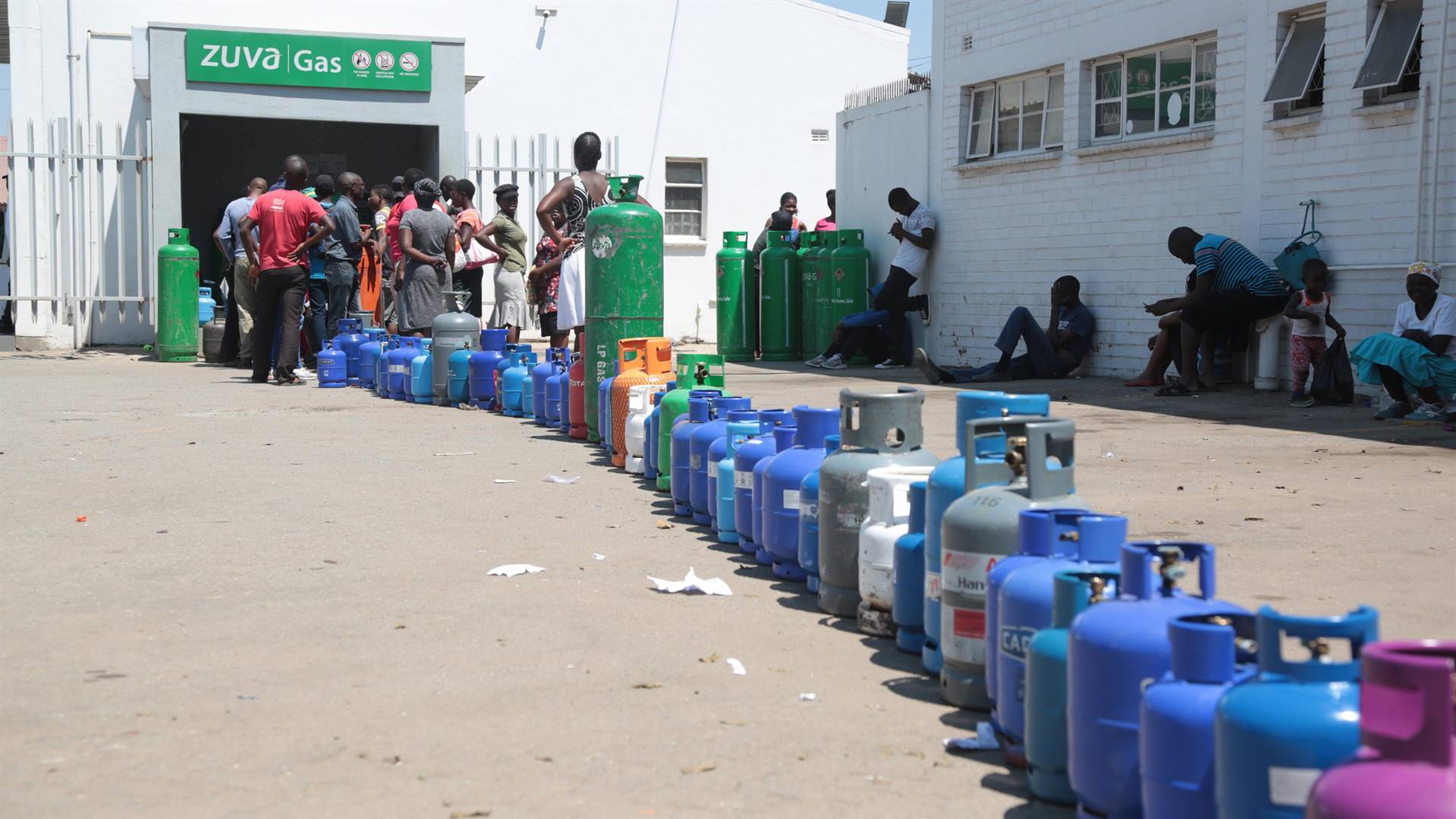
Zimbabwean citizens and businesses are under increased pressure from a contracting economy that is facing numerous challenges. These difficulties include soaring inflation that is reducing the earning and buying power of ordinary citizens.
A shortage of passports is the latest setback as it means locals are trapped in the country because of government failure to produce new passports.
Companies on the other hand are struggling because of sudden monetary policy shifts that have crippled business operations.
Inflation is hitting the pockets of Zimbabweans hard, with the Zimbabwe National Statistics Agency calculating the May inflation at 97.7%, which means that the cost of living is nearly doubling every year.
The country has relaxed import restrictions to allow citizens to bring more goods into the country.
However, the failure by government to produce passports means for many ordinary citizens this is no longer an option.
President Emmerson Mnangagwa’s government has acknowledged the “backlog of passport applications”, which it has blamed on “the unavailability of foreign currency” and ageing printing machinery.
“Treasury has already paid $591 000 to procure three state-of-the-art high-capacity additional printers. This will raise production from the current 3 000 passports a day to 8 000,” Information Minister Monica Mutsvangwa said this week.
Those who applied for passports last year are still waiting for their travel documents. However, hopeful applicants are still thronging the main passport office in central Harare, hoping that they will be issued with passports. Some of them want to travel to neighbouring countries to buy goods for personal use or for resale back in Zimbabwe while others would like to visit relatives.
“I just want to apply for a passport even though I know that it will take time to have it. This will not stop me from going to South Africa. I can’t stay here, I will make a plan,” said a 28-year-old woman at the passport office. She asked not to be named.
As if this was not enough, Zimbabwean households and companies are having to deal with worsening power cuts.
This is despite Eskom, a major electricity supplier in Zimbabwe, confirming this week that it had received a $10 million payment for outstanding power supply arrears.
In addition, Eskom is expecting the Zimbabwe Electricity Supply Authority (Zesa) to pay back a further $23 million in outstanding debt.
The country is mostly in darkness these days owing to load shedding of up to 15 hours a day, which have crippled business operations. Companies are being forced to incur extra costs by running diesel generators during load shedding.
Economic analysts at Harare-based IH Securities said this week that the greatest “potential risk facing the foreign currency generating capacity of the country is the acute electricity load shedding”.
However, South African-owned mining companies, such as the Anglo American Platinum (Amplats)-owned Unki mine, told City Press that they have not yet been affected by the power outages rocking Zimbabwe.
Busi Chindove, spokesperson for Impala Platinum’s Zimbabwean unit, Zimplats, said the company was engaging with the power utility Zesa in implementing measures which minimise power supply disruptions.
Mining companies pay a premium rate in foreign currency for guaranteed power supply.
However, they have not been better off when it comes to disruption and uncertainties caused by the recent monetary policy changes.
For Nampak’s Zimbabwe listed unit, the outlook for the second half of the year is bleak.
Keith Nicholson, company secretary of Nampak Zimbabwe, said the country’s “trading environment remains difficult and is likely to remain so” for the foreseeable future.
Most businesses in Zimbabwe face foreign currency shortages despite the introduction of the formal interbank foreign currency market recently.
Foreign currency shortages mean that companies are not able to import raw materials or key ingredients on time. They are also unable to settle debt, some of which has had to be rescheduled.
Economists told City Press that this would by a drag on economic growth for this year.
The World Bank, in its recently released Global Economic Prospects report, said it forecast the Zimbabwean economy would contract by 3.2% as a result of a drop in output as well as a “rise in inflation reducing real incomes and foreign exchange shortages” constraining economic activity.
This contraction compared with 0.8% growth in 2016, followed by a 4.7% expansion in 2017 and 3.5% growth last year.
Finance Minister Mthuli Ncube has touted the country’s 443 million Zimbabwean dollars (R17 million) budget surplus for the first quarter as an indicator of a return to sound economic growth but experts say more still needs to be done to prop up the economy. These measures should include effectively fighting corruption and cutting state costs.
Economist Brains Muchemwa urged the central bank to implement a “target range” for money supply, exports and imports in the aftermath of the reintroduction of the Zimbabwe dollar last week. He said the monetary policy targeting should be the essence of introducing a local unit.
Zimbabwean authorities are desperate for the new monetary measures to succeed and have started to enforce that businesses should price their goods in local currency while also threatening them to reduce prices.




 Publications
Publications
 Partners
Partners








